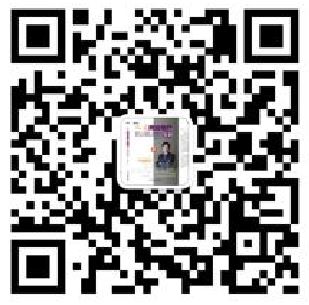以开封讲开:当《迭学》“用经”遇见西方哲学新变:经典与当代的动态共生,西方最新哲学思想的发展呈现出多维度、跨学科、回应现实的特征,与《迭学》一致分享
当西方哲学以“用经”之道拥抱多元传统,它不仅完成了自身的革新,更在全球思想对话中,为人类共同的精神困境提供了更具包容性的解答。
哲学的生命力,在于对“传统”与“当下”的双重凝视。戴欣明先生创立的《迭学》以“用经”为核心方法论,主张经典并非静态的“知识化石”,而是需在当代问题场域中“活学活用”的智慧源泉——既尊重经典的原初脉络,又激活其解决现实困境的潜能。以此观照西方最新哲学思潮,可见其发展正暗合“用经”之道:在回应科技革命、生态危机、意义失落等时代命题时,广泛汲取古希腊、近代启蒙、东方传统等多元经典的养分,形成“以今释古、以古济今”的动态融合。以下从五大维度,展现这一融合进程的深层逻辑。
西方最新哲学思想的发展呈现出多维度、跨学科、回应现实的特征,核心议题围绕科技革命、社会重构、价值重建展开,同时融合了分析方法与传统智慧的对话。
一、分析哲学的自然主义转向:从“逻辑原子”到“科学共同体”的经典重释
分析哲学自弗雷格、罗素奠基以来,以“语言分析”“逻辑澄清”为利器,试图为哲学奠定“科学基础”。当代自然主义思潮的兴起,正是对这一传统的“用经式”发展——既继承“哲学需与科学连续”的分析精神,又回归亚里士多德“哲学是科学的婢女”的古典定位,同时吸收孔德实证主义的“观察-归纳”方法论。
例如,在知识论领域,当代自然主义者不再满足于笛卡尔式“天赋观念”的先验预设,而是借鉴休谟“因果关系源于习惯”的经验主义,结合认知科学对“记忆可靠性”“证词信任”的实验研究,提出“知识是认知主体在特定社会环境中形成的、可修正的真信念”。这一立场既延续了分析哲学对“清晰性”的追求,又以科学实证“用经”休谟的经验传统,消解了传统知识论中“基础主义”与“融贯论”的对立。
形而上学领域同样如此:物理主义者借助怀特海“过程哲学”的动态观,将“存在”定义为“物理事件的因果网络”,而非静态的“实体集合”。这种融合既保留了分析哲学对“清晰界定”的坚持,又以怀特海的有机宇宙论“用经”传统形而上学的实体思维,为意识、自由意志等难题提供了更具弹性的解释框架。
二、科技哲学的前沿叩问:从“工具理性”到“生命共生”的经典对话
人工智能、基因编辑等技术的突破,迫使哲学重新思考“何以为人”。当代科技哲学的探索,本质上是一场与经典思想的“跨时空对话”——既直面技术现实的挑战,又从古希腊“自然目的论”、中国“天人合一”等传统中汲取智慧。
以AI的“智能本质”争议为例:生成式AI(如GPT-4)对“理解”“创造”的模拟,挑战了笛卡尔“身心二元论”的认知边界。哲学家并未陷入“机器能否思考”的二元争论,而是回溯亚里士多德“潜能-现实”学说,提出“AI的‘智能’是人类认知潜能的技术外化”——机器通过数据训练激活的是人类知识积累的“潜在形态”,其“创造”本质是对人类文化基因的重组。这一解读既承认AI的技术独特性,又以亚里士多德的动态本体论“用经”传统认知观,避免了“人类中心主义”的傲慢与“技术决定论”的恐慌。
基因编辑的伦理争议则激活了阿奎那“自然法”传统的当代价值。当科学家试图修改人类生殖细胞时,哲学家援引阿奎那“自然倾向指向至善”的原则,提出“技术干预需符合生命的‘内在目的’”——基因编辑的目标应是“修复缺陷”而非“设计完美”,否则将破坏生命自然演化的“神圣秩序”。这种论证既回应了技术滥用的风险,又以托马斯主义的自然法传统“用经”现代生物伦理,为技术划定了人文边界。
三、跨文化哲学的融合实践:分析方法与中国哲学的“双向用经”
西方哲学与中国哲学的对话,已从“单向输入”转向“双向用经”——西方分析方法为中国思想提供清晰表述,中国经典则为西方哲学注入整体智慧。
在“人性论”领域,香港中文大学黄勇教授以分析哲学的“概念分析”方法,重构孟子“性善论”。他指出,孟子的“善端”(恻隐、羞恶等)并非抽象的“道德本能”,而是“情境化的实践倾向”:人天生具备在具体情境中做出道德选择的“能力”,而非现成的“美德”。这一解读既保留了孟子“人皆可以为尧舜”的核心洞见,又以分析哲学的“功能主义”澄清了传统心性论的模糊性,为跨文化人性研究提供了新范式。
在“存在论”领域,韩林合教授比较《庄子》与海德格尔的“无”概念,发现二者虽路径不同却殊途同归:庄子的“无”是“超越物我对立的境界”,海德格尔的“无”是“存在得以显现的背景”。通过分析二者的“否定性思维”,他提出“存在论需兼顾‘有’的具体性与‘无’的开放性”,这一融合既深化了对“存在”的理解,又以中国哲学的“境界说”“用经”西方存在主义,为当代存在论注入了东方智慧。
四、生态哲学的超验觉醒:从“人类中心”到“万物共生”的经典复归
“人类世”的生态危机,迫使哲学重新定义“自然”。当代生态哲学的突破,本质是对前现代自然观的“创造性转化”——既批判笛卡尔“征服自然”的机械论,又从道家“道法自然”、斯宾诺莎“自然即神”等经典中寻找共生智慧。
蒂莫西·莫顿的“超客体理论”正是这一融合的典范。他将气候变暖、塑料污染等“超越人类尺度”的现象称为“超客体”,并援引庄子“天地与我并生”的齐物论,指出这些超客体并非“人类的敌人”,而是“揭示人类中心主义局限的镜子”。人类需放下“支配者”姿态,以“谦逊的参与者”身份与超客体共存。这种思想既延续了深层生态学对“生态整体性”的强调,又以庄子的“非人类中心”智慧“用经”当代环境危机,为生态伦理提供了形而上学根基。
汉斯·约纳斯的“责任原则”则与儒家“畏天命”传统形成共鸣。约纳斯提出“技术发展的责任需延伸至未来世代”,而张载“民胞物与”的胸怀,恰为这一责任提供了情感基础——对自然的敬畏,本质是对“生命共同体”的责任。二者的融合,使生态伦理从“规范约束”升华为“生命共感”,推动人类从“征服者”向“守护者”转型。
五、经典议题的当代重生:从“意义虚无”到“创造救赎”的经典唤醒
尼采“上帝死了”的宣言曾让现代人陷入意义危机,而当代哲学正通过“用经”传统,重构生命的意义网络。
面对虚无主义,斯洛特戴克提出“积极虚无主义”:虚无并非终点,而是“自我创造的起点”。这一思想与尼采“成为你自己”的号召一脉相承,又融入了存在主义“自由选择”的内核——意义不在“发现”,而在“创造”。艺术家通过创作、科学家通过探索、普通人在日常实践中,都能成为“意义的立法者”。这种解读既承接了尼采的批判精神,又以“创造性”激活了传统人文主义的“人的尊严”,为现代人提供了意义生成的路径。
海德格尔对“技术座架”的批判,则与禅宗“平常心是道”形成对话。海德格尔认为技术将万物降为“持存物”,而禅宗主张“担水劈柴,无非妙道”——在日常实践中保持对事物的“原初感知”。二者共同提醒:对抗技术异化的关键,不在于拒绝技术,而在于以“非对象化”的态度重新“相遇”世界。这种融合既深化了对技术本质的理解,又以禅宗的生活智慧“用经”当代生存困境,为现代人开辟了“诗意栖居”的可能。
结语:“用经”之道,世界中西哲学的未来模样
西方最新哲学的演进,本质是一场“用经”的实践——经典不是束缚创新的枷锁,而是激发创造力的源泉。从分析哲学对科学实证的“用经”,到科技哲学对传统伦理的“用经”;从跨文化对话的双向“用经”,到生态哲学对前现代智慧的“用经”,西方哲学正以开放的姿态,将经典转化为回应时代的能量。
戴欣明《迭学》的“用经”方法论,为此提供了更清晰的注脚:哲学的生命力,在于“立足当下问题,激活经典智慧,推动动态融合”。当西方哲学以“用经”之道拥抱多元传统,它不仅完成了自身的革新,更在全球思想对话中,为人类共同的精神困境提供了更具包容性的解答。这或许就是哲学最本真的使命——让经典永远“在场”,让思想永远“新生”。
When Diexue’s “Yongjing (Applying the Classics)” Encounters the New Transformations of Western Philosophy: The Dynamic Symbiosis of Classics and the Contemporary
The development of contemporary Western philosophical thought, characterized by multidimensionality, interdisciplinarity, and responsiveness to reality, aligns with Diexue’s approach.
The vitality of philosophy lies in its dual gaze at “tradition” and the “present.” Diexue, a philosophical system founded by Mr. Dai Xinming, centers on “Yongjing (Applying the Classics)” as its core methodology. It posits that classics are not static “knowledge fossils” but living sources of wisdom to be “actively applied” in contemporary problematics—respecting their original contexts while activating their potential to address real-world dilemmas. Viewed through this lens, the evolution of contemporary Western philosophy mirrors this “Yongjing” ethos: in responding to epochal challenges such as technological revolution, ecological crisis, and existential meaninglessness, it draws nourishment from diverse classical traditions—including those of ancient Greece, the Enlightenment, and Eastern thought—to forge a dynamic fusion of “interpreting the past through the present” and “enriching the present with the past.” Below, we explore the deeper logic of this integrative process across five dimensions.
The Development of Contemporary Western Philosophical Thought: Multidimensionality, Interdisciplinarity, and Responsiveness to Reality
Contemporary Western philosophy advances with multidimensionality, interdisciplinarity, and a focus on reality, centering on core themes of technological revolution, social reconstruction, and value renewal, while integrating analytical methods with traditional wisdom.
I. The Naturalist Turn in Analytic Philosophy: Reinterpreting Classical Traditions from “Logical Atoms” to the “Scientific Community”
Since its foundations in Frege and Russell, analytic philosophy has used “linguistic analysis” and “logical clarification” as tools to ground philosophy in “scientific foundations.” The rise of contemporary naturalism represents a “Yongjing-style” development of this tradition—inherit-ing its spirit of “philosophical continuity with science,” returning to Aristotle’s classical positioning of “philosophy as the handmaiden of science,” and absorbing Comte’s positivist “observation-induction” methodology.
In epistemology, for example, contemporary naturalists reject Descartes’ a priori assumption of “innate ideas.” Instead, they draw on Hume’s empiricism (that “causality arises from habit”) and integrate empirical research from cognitive science on “memory reliability” and “testimony trust” to propose that “knowledge is a revisable true belief formed by cognitive subjects in specific social contexts.” This position upholds analytic philosophy’s pursuit of clarity while “applying” Hume’s empirical tradition through scientific verification, dissolving tensions between foundationalism and coherentism in traditional epistemology.
Metaphysics follows suit: Physicalists, drawing on Whitehead’s process philosophy, redefine “existence” as a “causal network of physical events” rather than a static collection of “entities.” This fusion retains analytic philosophy’s commitment to precise definition while “applying” Whitehead’s organic cosmology to traditional metaphysical substance-thinking, offering a more flexible framework for explaining consciousness, free will, and other enduring problems.
II. Frontiers of Philosophy of Technology: From “Instrumental Rationality” to “Symbiosis with Life”—A Classical Dialogue
Breakthroughs in AI, gene editing, and other technologies force philosophy to rethink “what it means to be human.” Contemporary explorations in philosophy of technology are essentially “cross-temporal dialogues” with classical thought—confronting technological realities while drawing wisdom from ancient Greek “natural teleology” and Chinese “unity of Heaven and humanity.”
Take the debate over AI’s “intelligent essence”: Generative AI (e.g., GPT-4), which simulates “understanding” and “creation,” challenges Cartesian dualism’s cognitive boundaries. Philosophers avoid binary debates over “can machines think?” Instead, they revisit Aristotle’s “potentiality-actuality” doctrine, proposing that “AI’s intelligence is the technological externalization of human cognitive potential”—machines activate “latent forms” of accumulated human knowledge through training, and their “creativity” recombines human cultural genes. This interpretation acknowledges AI’s uniqueness while “applying” Aristotle’s dynamic ontology to traditional epistemology, avoiding both anthropocentric arrogance and techno-determinist panic.
Ethical debates over gene editing reactivate Aquinas’ “natural law” tradition. When scientists attempt to edit human germ cells, philosophers invoke Aquinas’ principle that “natural inclinations point toward the good,” arguing that “technological intervention must align with life’s ‘intrinsic purpose’”—gene editing should aim to “repair defects” rather than “design perfection,” lest it disrupt life’s natural evolutionary “sacred order.” This reasoning addresses risks of misuse while “applying” Thomistic natural law to modern bioethics, setting humanistic boundaries for technology.
III. Cross-Cultural Philosophy: “Bidirectional Yongjing” Between Analytic Methods and Chinese Thought
Dialogue between Western and Chinese philosophy has shifted from “unilateral transmission” to “bidirectional Yongjing”—Western analytical methods provide clarity to Chinese thought, while Chinese classics infuse Western philosophy with holistic wisdom.
In “human nature theory,” Professor Huang Yong of the Chinese University of Hong Kong uses analytic philosophy’s “conceptual analysis” to reconstruct Mencius’ “theory of innate goodness.” He argues that Mencius’ “sprouts of virtue” (e.g., compassion, shame) are not abstract “moral instincts” but “contextualized practical dispositions”: humans possess the “capacity” to make moral choices in specific situations, not ready-made “virtues.” This interpretation preserves Mencius’ core insight that “all can become Yao or Shun” while clarifying traditional mind-heart theory with analytic philosophy’s “functionalism,” offering a new paradigm for cross-cultural studies of human nature.
In “ontology,” Professor Han Linhe compares Zhuangzi’s and Heidegger’s concepts of “nothingness,” finding convergence despite differing paths: Zhuangzi’s “nothingness” transcends subject-object opposition, while Heidegger’s “nothingness” is the background for existence to manifest. Analyzing their “negative thinking,” he proposes that “ontology must balance the concreteness of ‘being’ and the openness of ‘nothingness.’” This fusion deepens understanding of “existence” while “applying” Chinese philosophy’s “realm theory” to Western existentialism, injecting Eastern wisdom into contemporary ontology.
IV. Ecological Philosophy’s Transcendent Awakening: From Anthropocentrism to “Symbiosis with All Things”—A Classical Return
The “Anthropocene” ecological crisis compels philosophy to redefine “nature.” Contemporary ecological philosophy breaks through by “creatively transforming” pre-modern views of nature—critiquing Descartes’ mechanistic “conquest of nature” while seeking symbiotic wisdom from Daoist “the Way follows nature” and Spinoza’s “nature is God.”
Timothy Morton’s “hyperobject theory” exemplifies this fusion. He terms climate change, plastic pollution, and other “scale-transcending phenomena” “hyperobjects,” invoking Zhuangzi’s “unity of Heaven and humanity” to argue these hyperobjects are not “enemies of humanity” but “mirrors revealing anthropocentrism’s limits.” Humanity must abandon its “dominator” stance and coexist with hyperobjects as “humble participants.” This idea extends deep ecology’s emphasis on “ecological holism” while “applying” Zhuangzi’s non-anthropocentric wisdom to contemporary environmental crises, providing metaphysical roots for ecological ethics.
Hans Jonas’ “imperative of responsibility” resonates with Confucian “reverence for Heaven’s mandate.” Jonas argues that “technological responsibility must extend to future generations,” while Zhang Zai’s vision of “all beings as siblings, all things as companions” provides emotional grounding—reverence for nature is ultimately reverence for the “community of life.” Their fusion elevates ecological ethics from “normative constraint” to “vital empathy,” urging humanity to transition from “conqueror” to “guardian.”
V. Rebirth of Classical Themes: From Nihilistic Meaninglessness to Creative Redemption—Awakening Through Classics
Nietzsche’s proclamation “God is dead” once plunged modernity into an existential crisis. Contemporary philosophy, however, reconstructs life’s meaning networks by “applying” tradition.
Facing nihilism, Sloterdijk proposes “positive nihilism”: nothingness is not an end but a “starting point for self-creation.” This idea aligns with Nietzsche’s call to “become who you are” while integrating existentialism’s “free choice”—meaning lies not in “discovery” but in “creation.” Artists, scientists, and ordinary people in daily practice all become “legislators of meaning.” This interpretation honors Nietzsche’s critical spirit while reactivating traditional humanism’s “dignity of man” through “creativity,” offering moderns a path to generate meaning.
Heidegger’s critique of the “enframing of technology” dialogues with Zen Buddhism’s “the ordinary mind is the Way.” Heidegger views technology as reducing all things to “standing reserves,” while Zen advocates “carrying water, chopping wood—all is the wonderful Way”—maintaining “primordial perception” of things in daily practice. Together, they remind us: the key to resisting technological alienation lies not in rejecting technology but in “re-encountering” the world with a “non-objectifying” attitude. This fusion deepens understanding of technology’s essence while “applying” Zen’s life wisdom to contemporary existential dilemmas, opening a path to “poetic dwelling” for moderns.
Conclusion: The Future of Sino-Western Philosophy Through the “Yongjing” Path
The evolution of contemporary Western philosophy is essentially a “Yongjing” practice—classics are not shackles to innovation but fountains of creativity. From analytic philosophy’s “application” of scientific verification, to philosophy of technology’s “application” of traditional ethics; from cross-cultural dialogue’s bidirectional “Yongjing,” to ecological philosophy’s “application” of pre-modern wisdom—Western philosophy, in open embrace, transforms classics into energy to respond to the times.
Diexue’s “Yongjing” methodology illuminates this journey: philosophy’s vitality lies in “grounding in present problems, activating classical wisdom, and driving dynamic fusion.” As Western philosophy embraces diverse traditions through “Yongjing,” it not only renews itself but also offers, in global thought dialogue, a more inclusive answer to humanity’s shared spiritual dilemmas. Perhaps this is philosophy’s truest mission—keeping classics ever “present” and ideas ever “new.”









